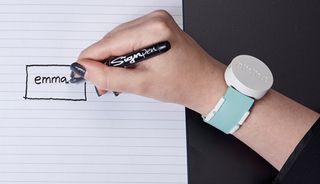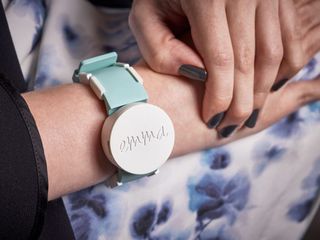Microsoft's Project Emma helps people with Parkinson's Disease
Approximately 10 million people around the world are living with Parkinson's Disease. Microsoft doesn't have a cure, but its Emma Watch can help alleviate one of the disease's most troubling symptoms.


Parkinson's is a progressive brain disease which is the result of brain cells dying. The disease is characterized by both motor and non-motor symptoms. Non-motor symptoms include fatigue, excess saliva, constipation and loss of one's sense of smell. Motor or movement-related symptoms include rigidity, shaking, and tremors.
Emma Lawton, a graphic designer, was 29 when she was diagnosed with Parkinson's Disease. The persistent tremors the disease caused in her hands plagued her. Akin to a singer losing her voice or a football star losing his mobility, this graphic designer losing her ability to write her own name seemed like cruel irony.
Lawton's misfortune was an opportunity for an expression of empathy, however. Microsoft's Haiyan Zhang, an innovation director, embraced Lawton's cause and invented technology that not only enriched Lawton's life but may impact the lives of millions of people living with Parkinson's Disease.
- How fathering a son with disabilities helped Microsoft's CEO transform the company
- Microsoft's Autism Hiring Program aims to attract diverse talent
- How Microsoft used tech to help people with ALS regain mobility
- How Microsoft's inclusion mission is helping the blind to 'see'
- How Microsoft is helping deaf people 'hear'
An innovator's motivation
Lawton sharing her experience with Parkinson's
Zhang loves technology. Her dedication to the tech industry isn't for technology's sake alone, however. She's motivated by what technology can do to help others. As such, her 18 years in the industry is complemented by her involvement in a global culture that merges the ingenuity of DIY efforts and the engineering achievements of modern technology called the Maker movement.
This movement is a platform for selfless individuals to benefit the world through technological innovations. Zhang sees little distinction between her involvement in the Maker movement and her mission at Microsoft.
After Zhang learned of Lawton's condition, she set out to discover a way to circumvent the signals coming from the brain that caused Lawton's tremors. She built prototypes of a device that used tiny motors that she deduced would, in effect, short-circuit the tremors caused by Parkinson's.
Get the Windows Central Newsletter
All the latest news, reviews, and guides for Windows and Xbox diehards.
The Emma Watch
Zhang's work culminated in what she called the Emma Watch. A device with the name of the person who inspired it was emblazoned across its surface. What it achieved is etched in the annals of technological history. When Lawton donned the contraption bearing her namesake, neither she nor Zhang fully expected it to allow her to write her name by abating the tremors that had plagued her for years. But it did.
Lawton, a graphic designer, had regained her ability to write, not because of technology alone, but because of the compassion that fueled the application of technology to a problem.
Emma Lawton wrote her name for the first time in years.
Lawton also drew a straight line and a rectangle. Her life had taken on new form. She called her mother, and between sobs expressed how she was able to write her name because of the Emma Watch, which is the only device of its kind. Zhang said the following of the impact of this experience:
As someone who works in technology and thinks about new kinds of things, I don't really see the impact of that on people's lives or on an individual. For me, it was so powerful to see her life made better.
From Emma Watch to Project Emma and beyond
Lawton is video blogging a year of her life with Parkinson's.
Just as Hackathon projects led from prototypes to broader company missions to help people with ASL and the deaf and hard of hearing, Zhang's Emma Watch project became Microsoft's Project Emma.
Zhang and her team are seeking to leverage the power of AI, the cloud and machine learning to support a device that detects and counteracts the symptoms of Parkinson's Disease. Project Emma is targeting other Parkinson's symptoms in addition to tremors such as gait slowness, falling and body rigidity. Microsoft's intelligent cloud investments and long history as a leader in AI and machine learning should be an asset to this ambitious project.
Bill Gates and Steve Ballmer paved the way for Nadella's AI and bots
Zhang's heart to help others through technology is also reflected in her project to help children with Cystic Fibrosis called Fizzyo. Additionally, Project Torino is her endeavor to help children with visual impairments. These children and millions of people living with Parkinson's may potentially have life-changing experiences as the result of these various efforts.
Benefiting from the compassion and selflessness of others is a compelling experience. Lawton said this of her experience with Zhang:
To be able to write your name is a basic human right. To be able to do it and do it neatly is really special to me now. It's empowering. It made me feel that I could do anything.
Jason L Ward is a columnist at Windows Central. He provides unique big picture analysis of the complex world of Microsoft. Jason takes the small clues and gives you an insightful big picture perspective through storytelling that you won't find *anywhere* else. Seriously, this dude thinks outside the box. Follow him on Twitter at @JLTechWord. He's doing the "write" thing!

